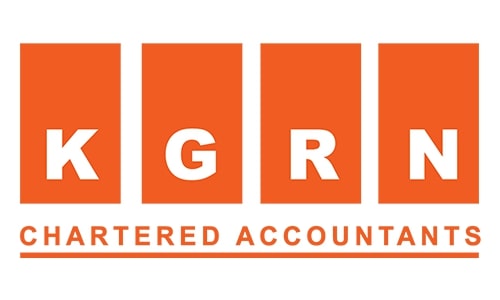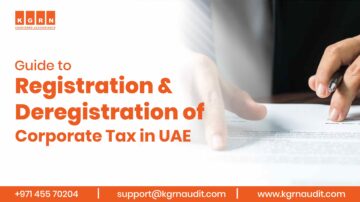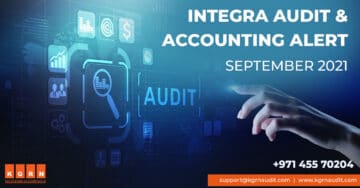The International Financial Reporting Standards (IFRS) for Small and Medium-sized Entities (SMEs) were developed by the International Accounting Standards Board (IASB) as a simplified framework for smaller businesses. These standards cater specifically to entities that do not have public accountability, meaning they are not listed on public stock exchanges and do not hold assets in a fiduciary capacity, such as banks or insurance companies. The primary goal of IFRS for SMEs is to provide a globally recognized, streamlined reporting system that reduces the complexity and cost of financial reporting for smaller entities.
Concept of IFRS for SMEs
IFRS for SMEs is a condensed version of full IFRS, designed to meet the needs and capabilities of SMEs. It is approximately 10% of the size of the full IFRS standards and is written in a manner that is easier to understand and implement. The framework eliminates options and unnecessary complexities that are irrelevant for smaller businesses, making it an attractive alternative for entities that want to adopt global standards but lack the resources to apply the full IFRS.
The scope of IFRS for SMEs includes key accounting principles but simplifies recognition, measurement, and disclosure requirements. For instance, the framework does not require the use of complex fair value measurements and other intricate accounting rules used by large companies. Furthermore, it allows for simplified accounting treatments in areas like goodwill amortization and lease accounting, reducing the burden on SMEs.
Key Advantages of IFRS for SMEs
-
Simplified Reporting
IFRS for SMEs reduces the complexity involved in financial reporting. Full IFRS includes a wide range of complex standards that many smaller entities do not need. IFRS for SMEs condenses these standards and makes reporting more manageable for businesses that don’t have the same level of accounting resources or expertise as large corporations.
-
Cost-Effectiveness
The costs associated with applying full IFRS are high, due to the need for specialized accountants, compliance costs, and the complexity of the standards. IFRS for SMEs reduces these costs by simplifying the rules and cutting out standards that are irrelevant to smaller businesses. For example, SMEs do not need to perform frequent impairment tests for goodwill, making compliance more affordable.
-
Enhanced Global Comparability
By adopting IFRS for SMEs, smaller entities benefit from a globally recognized reporting framework. This is particularly advantageous for businesses that operate internationally or seek international investment. It provides consistency in financial reporting across borders, facilitating better communication with investors, banks, and other stakeholders.
-
Improved Access to Finance
Investors and lenders often prefer financial statements prepared in accordance with recognized standards. By using IFRS for SMEs, entities can present more reliable and consistent financial information, making it easier to secure funding or loans from global financial institutions.
-
Flexibility for Local Adaptation
IFRS for SMEs offers jurisdictions the flexibility to customize the standards for local requirements. While it provides a global framework, local accounting bodies can adjust certain aspects to better suit the national context, ensuring a balance between international best practices and domestic business environments.
Key Disadvantages of IFRS for SMEs
-
Limited Applicability
One of the major criticisms of IFRS for SMEs is its limited scope. Not all SMEs fit neatly into the definition provided by the IASB. Companies with unique or complex transactions may find the framework insufficient, leading them to opt for full IFRS or other reporting frameworks.
-
Lack of Comprehensiveness
While simplicity is one of its strengths, the IFRS for SMEs may exclude certain detailed guidance or options that might be beneficial for businesses with slightly more complex financial structures. For example, the treatment of financial instruments and revenue recognition under IFRS for SMEs is less detailed compared to full IFRS, which may cause issues for companies that engage in more intricate business activities.
-
Challenges in Transition
Switching to IFRS for SMEs from other accounting frameworks, such as national standards, can involve a significant transition effort. Businesses may need to retrain accounting staff, adapt internal systems, and recalibrate their financial reporting processes. This could involve additional costs in the short term, particularly for entities that are more accustomed to local reporting standards.
-
Periodic Updates
As with full IFRS, IFRS for SMEs is updated periodically to reflect new accounting trends and regulatory changes. This creates a need for ongoing compliance efforts, which could still impose some burden on smaller businesses, albeit less than full IFRS.
Go Global with IFRS Accounting for Small and Medium Entities
The IFRS for SMEs is a standalone accounting standard, tailored to address the needs of SMEs and users who are reliable on their financial statements. It is considered a simplified, unambiguous version of the full IFRS with reduced complexities, few disclosure requirements, and simplified measurement principles.
Improve your accounting standards, gain transparency, and achieve compliance to make data-driven decisions using IFRS accounting standards and thrive in the global market.
KGRN Chartered Accountants is a leading accounting and auditing firm specializing in providing end-to-end financial services for businesses since 2007. We empower businesses by taking the hassle out of the financial management processes such as accounting, auditing, taxation, payroll management, company formation, and more. Our goal is to help businesses stay compliant and achieve profitable growth by ensuring adherence to regulatory standards and smooth operations. Ultimately, KGRN is a one-stop solution for all the financial management challenges of businesses.
Get in touch with our KGRN Experts







